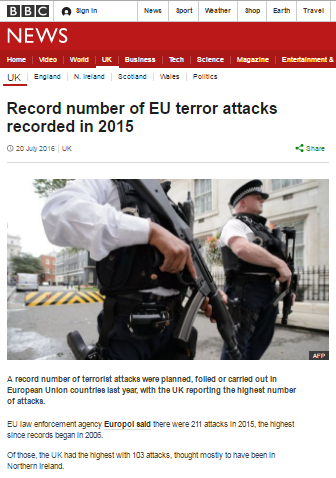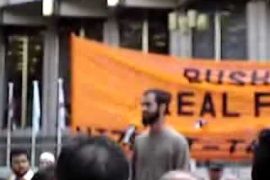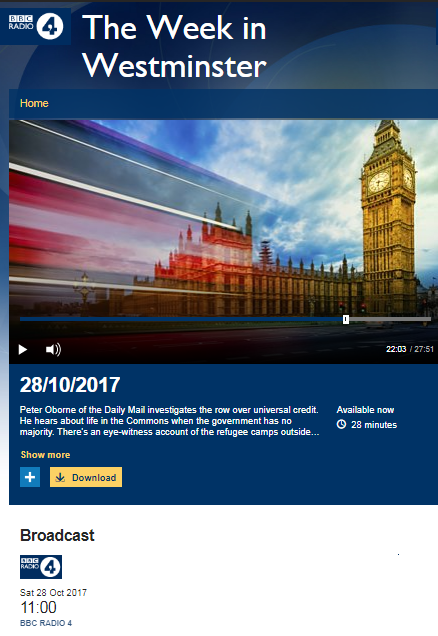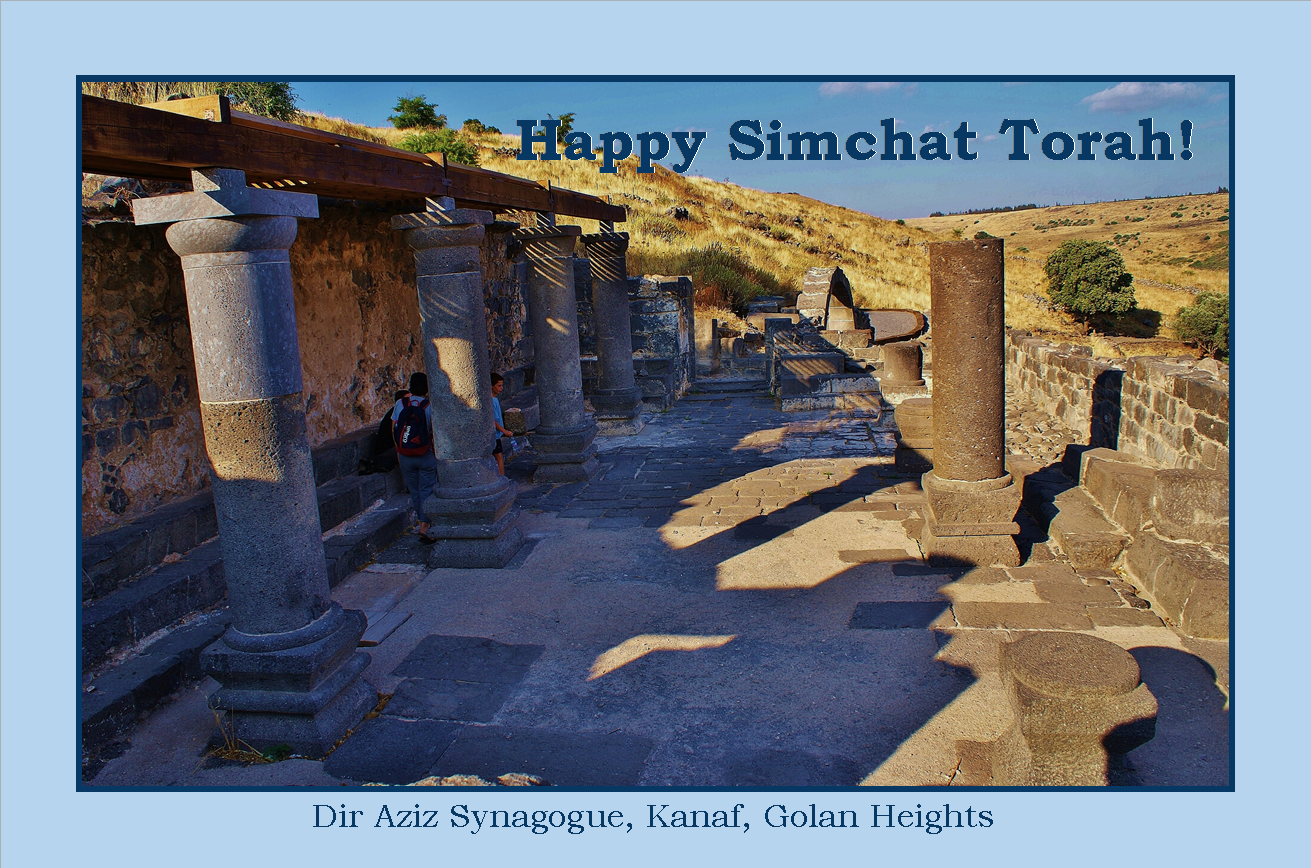On July 20th the BBC News website’s UK page published an article titled “Record number of EU terror attacks recorded in 2015“.
“A record number of terrorist attacks were planned, foiled or carried out in European Union countries last year, with the UK reporting the highest number of attacks.
EU law enforcement agency Europol said there were 211 attacks in 2015, the highest since records began in 2006.”
However, later on readers are told that the number 211 also includes “planned” and “foiled” attacks:
“A spokeswoman for Europol said it did not have a breakdown of the number of terror attacks that had actually been carried out in the EU.” [emphasis added]
The BBC’s 458 word article makes use of the word ‘terror’ four times (including in its headline). The words ‘terrorism’ is used six times – including twice in quotes – and the word ‘terrorist’ is used seven times, including four times in quotes.
In other words, the BBC rightly had no problem telling readers in its own words that citizens of EU countries were subjected to actual, planned and attempted terror attacks during 2015.
In contrast, as has been documented here on numerous occasions, the BBC does not tell its audiences in its own words that terrorism – on a significantly larger scale – exists in Israel (unless the perpetrators belong to a particular ethno-religious group) and it has an editorial policy of using the words ‘terror’, ‘terrorism’ and ‘terrorist’ only in direct quotes; usually from Israeli officials. For example:
BBC reports on Kiryat Arba attack without using the word terror
What word is missing from BBC report on sentencing of Hamas terrorists?
BBC News reports Jerusalem bus bomb without using the word terror
BBC News revisits a 30 year-old terror attack – avoiding the term terror
The BBC’s editorial guidelines concerning “Language when Reporting Terrorism” state:
“There is no agreed consensus on what constitutes a terrorist or terrorist act. The use of the word will frequently involve a value judgement.
As such, we should not change the word “terrorist” when quoting someone else, but we should avoid using it ourselves.”
In this report the BBC clearly did not find it necessary to comply with that guideline, having used the words terror, terrorist and terrorism itself eleven times and on six additional occasions in quotes. And – despite the guideline’s claim of the absence of a consensus on terrorism – the article’s writer was apparently able to accept the definition of terrorism used in the Europol report which is its subject matter.
“The definition of the term ‘terrorist offences’ is indicated in Article 1 of the Council Framework Decision of 13 June 2002 on combating terrorism (2002/475/JHA)1 , which all EU Member States have implemented in their national legislation. This Framework Decision specifies that terrorist offences are intentional acts which, given their nature or context, may seriously damage a country or an international organisation when committed with the aim of:
- seriously intimidating a population, or
- unduly compelling a government or international organisation to perform or abstain from performing an act, or
- seriously destabilising or destroying the fundamental political, constitutional, economic or social structures of a country or an international organisation.”
In other words, when it comes to terrorism in Europe the BBC apparently has no problem with “value judgements”.
What this article shows us yet again is that those editorial guidelines on “Language when Reporting Terrorism” are not worth the virtual paper upon which they are written. When the BBC wants to use words such as ‘terror’, ‘terrorism’ or ‘terrorist’, it does. When it wants to make “value judgements”, it does and in fact what dictates the BBC’s choice of terminology is “a political position” of precisely the type it purports to avoid.
Absurdly, the corporation would still have its funding public believe that its coverage of terrorism is consistent, accurate and impartial.
Related Articles:
Continuing the mapping of BBC inconsistency in terrorism reporting
Reviewing the BBC News website’s coverage of terror in Israel: October 2015 to March 2016
BBC News website does ‘one man’s terrorist’
BBC Complaints: terror attacks in Jerusalem and Tunisia are “very different”




